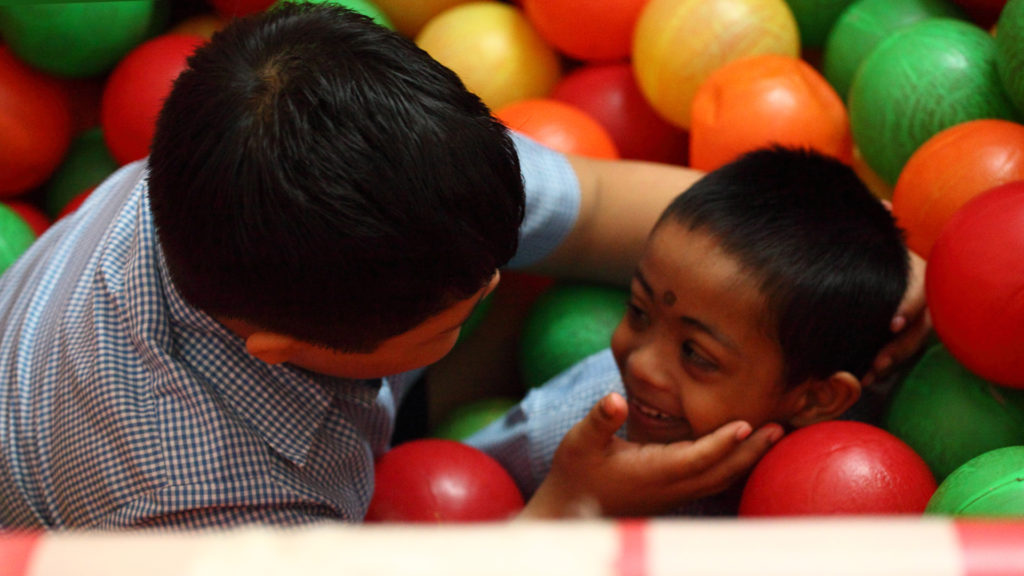Evaluation or Assessment of Developmental milestones of babies with potential risk of any disabilities or babies born with any disabilities is considered to be the primary step before starting rehabilitation. Based on the Evaluation or Assessment report suitable goals are set and different therapy programs are implemented accordingly. Early identification and early evaluation help in designing early intervention programs. Physical, emotional and intellectual defects are not unusual in children. They are usually not detected early enough. Early detection and therapy can decrease and even reverse these effects to a large extent.
Proper Evaluation or Assessment is, therefore, necessary for imparting comprehensive rehabilitation. For that, a team of experts is required to analyze each datum of evaluation and come to a conclusion as the �diagnosis”. Hardly a few institutions or organizations are there for doing proper evaluation of such disabilities and often even when such evaluation is attempted; and consequently, the outcome of rehabilitation measures is not satisfactory. Proper and scientific assessment of children by trained personnel can guide parents and teachers to take appropriate steps to remedy the neurological and behavioral deficits. Ideally, intervention should begin in the first few days after birth, particularly in high-risk babies i.e. those, born with low birth weight, pre-term, or through difficult or protracted labour and those who suffer deficiency of oxygen during and after birth. Intervention is usually multi-modal, delivered by a specially trained team of professionals. It should be provided in a structure, in a closed environment. Appropriate medical and surgical inputs may be added depending on the needs of the child; finally, the place should be safe and the caregivers compassionate and skilful
For each disability, a thorough evaluation is required to design the appropriate programs. Evaluation is unique for each disability using different scales and tools. To do a comprehensive evaluation of all the three aspects, namely Physical, Psychological and Social , of a child. .It may take 2-3 days. Therefore, the specialist who does the evaluation should have, apart from a good knowledge about the check lists/scales, which she/he uses for the test , very importantly extreme patience.
Basic evaluation is done at the hospitals from there the child is referred to the concerned specialist for further evaluation. It may be very difficult to accept that there is such acute paucity of evaluation centres in such a health conscious state like Kerala but unfortunately that is the position.. Due to the non-availability of such a well-equipped centres in our state, most of the children with complicated features or symptoms are referred to centres outside Kerala(Eg. Most of the children with Autism go to Bengalooru or Velloor for evaluation). To remedy this situation at least partially, Adarsh Charitable Trust had started an Evaluation and Research Centre in Ernakulam.
The decision was taken after a lot of discussions with various experts and professionals. The plan is to begin a complete evaluation centre using advanced scales and assessment tools for all the disabilities at one basic intervention centre concentrating mainly on early intervention. As the name, “Child Developmental Evaluation,Intervention & Research Centre” indicates, we intend to make it also a research centre for disabilities , particularly Autism Spectrum Disorders (ASD). ASD is found to be the most complicated situation in children. Its habilitation is also considered to be quite difficult as it is generally diagnosed late. Through this centre we expect to produce a change in the scenario brought about by late diagnosis not only of ASD but also other childhood developmental problems.
The centre provides the following services:
